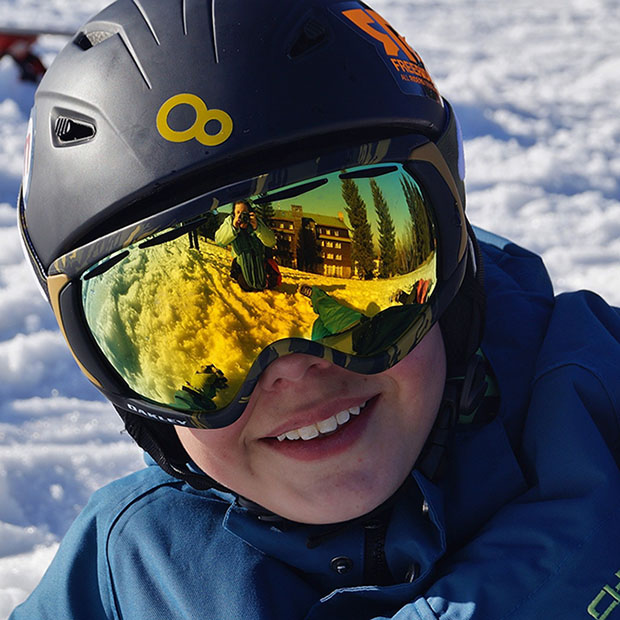Winter Eye Protection

It may seem strange, but sunglasses are just as important in winter as they are in summer.
The same UV rays that give us sunburns on the beach are just as dangerous on a snowy mountain. Even if most of our skin is covered by thick layers of snow gear, our eyes can still be vulnerable without the proper eye protection.
Dry Winter Air Leads to Winter Dry Eye
The air tends to be dryer in winter than in other seasons, and when we turn on the heaters inside to stay cozy in our homes and cars, we dry it out even more. That means anyone prone to dry eye is more likely to feel that gritty eye irritation in winter. Some good strategies for avoiding winter dry eye are staying hydrated and using a humidifier, and maybe let the seat warmers do more of the work in the car than the heater.
A Bright Snowy Day Can Result in Snow Blindness
There are a few ways the winter sun can harm our eyes. Too much sun on a snowy day, if we aren’t wearing eye protection, can lead to a temporary condition called snow blindness. This also happens to welders and tanning bed enthusiasts who aren’t careful. Skiers and snowboarders should be especially cautious because the snow reflects sunlight, greatly increasing the UV exposure to the unprotected eyes.
Symptoms of snow blindness include pain and burning in the eyes, feeling like something is stuck in them, light sensitivity, swollen eyelids, watery eyes, headache, blurred vision, and exaggerated glare around lights indoors. However, snow blindness doesn’t always set in immediately, which can leave a window of several hours to keep getting more damaging sun exposure before you notice it!
Goggles for the Winter Athlete
Before hitting those bright, sunny slopes, we recommend finding a good pair of goggles. They provide better coverage than sunglasses, they can fit over glasses, and some even come with anti-fog coatings to keep them from steaming up! Explore your options with colored lenses, because different colors can be helpful in different conditions. There are also universal lenses that work pretty well in all conditions!
Don’t Put Those Sunglasses Away in Winter
Everywhere but a mountainside, the right pair of sunglasses is a great defense against the sun in winter. Polarized lenses aren’t ideal for skiing and snowboarding because they can make it harder to see the contours of the slopes, but they’re fantastic everywhere else. They block the light coming in from certain angles, which eliminates glare. Make sure to look for sunglasses that are UV-blocking and polarized. We’re happy to help you find the perfect pair if you’re not sure where to begin!
Bring Us Your Winter Eye Protection Questions!
We want our patients to have a fantastic winter, and part of that is knowing you’ve got great eye protection for all your favorite winter activities. We can help you discover which features are most important in a pair of goggles or sunglasses, and of course we’re always here for eye exams and prescription updates when you need those!